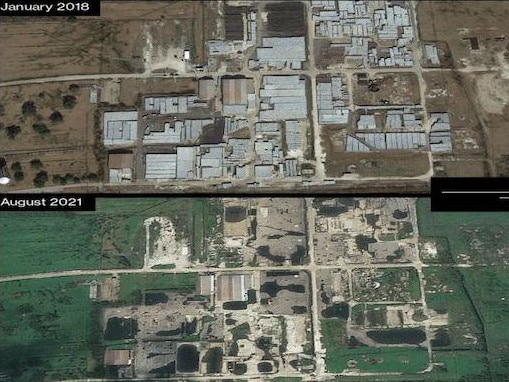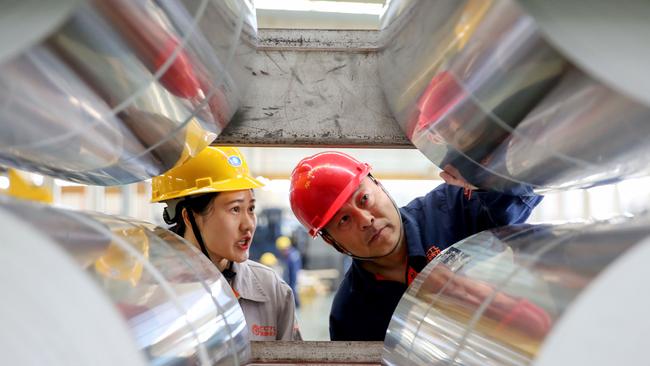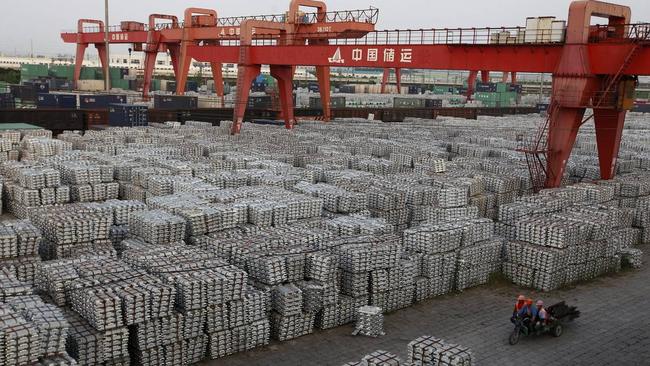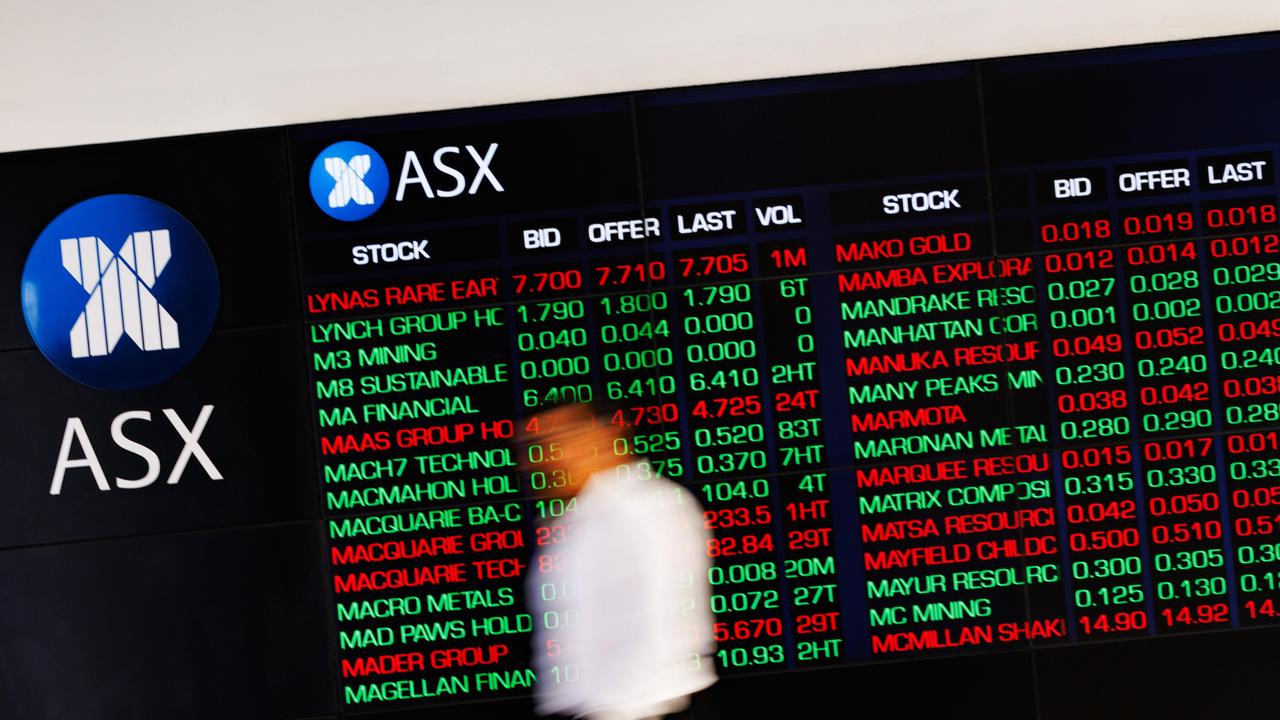China starves supply of key ingredient for everything from beer cans to car parts
There’s a global shortage of a key material which could impact everything from construction to consumer goods, yet a stockpile worth $US5m sits untouched.

Markets
Don't miss out on the headlines from Markets. Followed categories will be added to My News.
China used to be the top producer of aluminium, a material that has grown in popularity as it’s seen as a way to help tackle environmental problems, yet the country’s supply has been severely hampered – which could see prices of everyday goods soar.
To add to the crisis, there is 1.8 million tonnes of aluminium worth a whopping $US5 billion that is currently being closely watched by security guards in Vietnam.
Everyone from car makers to soft drink and beer producers are scrambling to get their hands on the material, which is suffering its worst shortage ever.
The supply in Vietnam was seized as part of a US led investigation involving a Chinese billionaire and alleged trade fraud.
The material was falsely labelled as ‘Made in Vietnam’ and was likely headed to the US, however the inquiry has yet to be concluded, meaning it sits in an industrial yard covered by black tarpaulin.
But if the huge stockpile was released it could end the worldwide shortage and send the price of the commodity crashing, reported Bloomberg.
“Normally stocks are available for the right price, but one of the issues with this material is that it’s not entirely clear under what circumstances it would become available,” Ross Strachan, senior aluminium analyst at CRU in London told Bloomberg.
“There’s little evidence that the Vietnamese stocks should provide any solace for consumers.”


Aluminium markets have tightened this year as demand has increased due to the global
economy rebounding, according to Commonwealth Bank’s mining and energy economist Vivek Dhar.
China’s infrastructure-led stimulus from last year was the key trigger, but the recovery in the global economy outside China is now also supporting demand, he added.
“Supply from China is 56 per cent of primary supply (which) has also been adversely impacted from mid-2021 as power shortages have forced curtailments,” he told news.com.au.
“Aluminium production is electricity-intensive, (worth) 34 per cent of aluminium costs globally, so it is naturally a logical place to start to reduce power use.
“It’s worth noting that curtailments in China predate the most recent energy crisis in late September. There were reports of power shortages around mid-year in southern China.”
There’s no good news ahead either with China looking to cap aluminium capacity at 44 to 45 million tonnes to keep a lid on emissions, he noted.
“That means that aluminium supply growth is likely to peak at some point in the next few years too,” he said.
“Supply outside China would then need to rise to meet global demand growth. With emissions reduction also a key driver of economics outside of China, that could prove challenging. Going down a route of ‘green’ aluminium makes sense, but green aluminium costs are likely to be higher.”

Which means the cost of every day goods could be set to skyrocket as the material is used everywhere from construction to transport and packaging and consumer goods.
There are a few key trends developing in aluminium consumption – particularly in relation to the environment – but the pace of all these changes are under threat if aluminium prices rise because of shortages, Mr Dhar said.
These include making vehicles lighter by using aluminium in place of steel resulting in improved fuel efficiency, while manufacturers are also switching to aluminium packaging from plastic and glass packaging.
There's also electric grid expansions with growth in electric grids outpacing economic growth as more distributed renewable power requires more network transmission and distribution.
“These trends are important from a decarbonisation angle,” Mr Dhar added.
Meanwhile, China is now importing more aluminium as it drives down its domestic output, meaning its helping to rapidly deplete the world’s aluminium reserves just when manufacturers need them most.
More Coverage
Originally published as China starves supply of key ingredient for everything from beer cans to car parts





